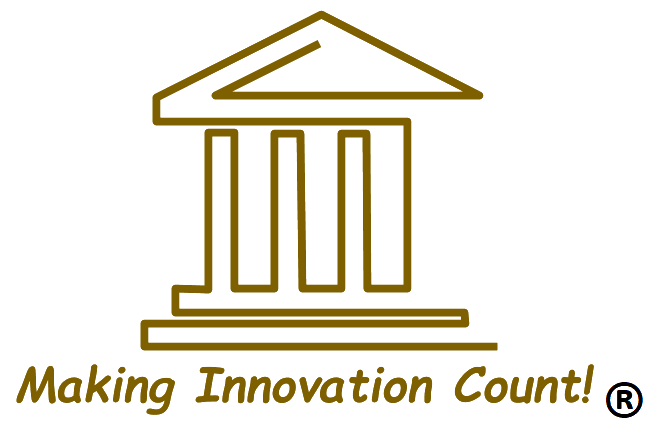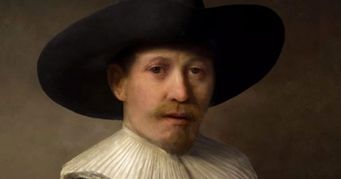 Artificial Intelligence, or AI for short, has been making rapid improvements over the past few years. It seems so long ago when a computer called Deep Blue won its first chess game against a world champion in 1996. However, some would argue that Deep Blue was not artificially intelligent but that it only processed computer code that would rank various moves and then pick the best ranked move. After all, chess has a finite number of pieces that all move in a restrictive manner so in some ways chess is rather predictive and lends itself well to solutions by computer software. Fast forward to the past few years and AI has been able to do some rather amazing things that previously was exclusively in the domains of humans. Here are some examples:
This all sounds exciting and scary at the same time. In the past AI only played a very limited role when creating works of art by assisting the human creator in a particular aspect of the work. Now computers running AI software are starting to replace humans in creating music, writing literary works, and painting works of art. For intellectual property attorneys the question “Who owns the copyright?” is immediately raised. The answer to the question is found by looking at the law. Here in the United States the Copyright Office has declared that it will “register an original work of authorship, provided that the work was created by a human being” as case law held that copyright law only protects “the fruits of intellectual labor” that “are founded in the creative powers of the mind.” (Feist Publications v Rural Telephone Service Company, Inc. 499 U.S. 340 (1991)). See also the first paragraph in Circular 1 - Copyright Basics published by the United States Copyright Office. Here in the United States works of art such as music, literary works, and images that are created by a computer are not copyrightable. The impact of this is that all works created by a computer are in the public domain. Many other countries have similar laws which hold that only humans may obtain a copyright. To the general public this may be desirable as these works of art will be free to copy. However, such an outcome may cause technology companies to invest their billions on other technologies that have the potential to produce a revenue stream and thus hindering the development of AI software here in the United States. Some countries, such as England and other commonwealth nations, have already changed their copyright laws to grant the copyright to “the person by whom the arrangements necessary for the creation of the work are undertaken” in the case of works created by a computer. It is not clear how courts will define “arrangement necessary” but it is a start. In many areas of life the computer has required that we rethink how some of our laws are written. The day is approaching when the United States will have to rethink its copyright law to take into account AI.
1 Comment
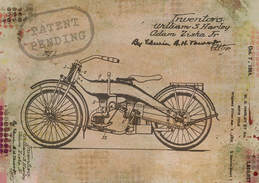 Basically a business may hire two types of individuals. These two types of individuals are employees and independent contractors. If you hire an employee here in California, the law favors the employer being the owner of any intellectual property created by the employee, even intellectual property created by the employee while "off the clock" as long as it is related to the work the employee is performing for their employer. However if an employee signs an intellectual property agreement with their employer then the intellectual property agreement will prevail. If you are an engineer or computer programmer, in most cases, when hired you were asked to sign an agreement whereby you agree to release to your employer all intellectual property that was created during the period of your employment. Refusing the sign the agreement will likely not grant you any intellectual property rights as by law you are required to turn over your intellectual property to your employer. However, if you sign an intellectual property agreement that states you may keep any intellectual property you develop during the period of your employment then the agreement will prevail against the law and you will retain your rights to IP that you create. This situation is, for the most part, reversed when it comes to independent contractors. Unless the independent contractors signs an agreement to turn over any intellectual property that is created in the course of working for the company the independent contractors retains all rights to the created intellectual property. There are exceptions to these general rules and you should talk with an attorney to get an answer for your specific case but what sets an independent contractor apart from an employee? The Internal Revenue Service (IRS) states that "The general rule is that an individual is an independent contractor if the payer has the right to control or direct only the result of the work and not what will be done and how it will be done." Here the word "payer" is the company that is paying the individual doing the work. The IRS also provides the following details:
You may get more information from the IRS about independent contractors by clicking here.
If you have hired someone that fits the IRS rules for an independent contractor then very likely that individual is an independent contractor and they will generally own any intellectual property that they create unless they sign an agreement giving you rights to their intellectual property. So be careful and when in doubt have your new person sign an intellectual property agreement to transfer those rights to you. If you need help contact me and I can draft that agreement for you. If you have hired someone that fits the IRS rules for an independent contractor then very likely that individual is an independent contractor and they will generally own any intellectual property that they create unless they sign an agreement giving you rights to their intellectual property. So be careful and when in doubt have your new person sign an intellectual property agreement to transfer those rights to you. If you need help contact me and I can draft that agreement for you. 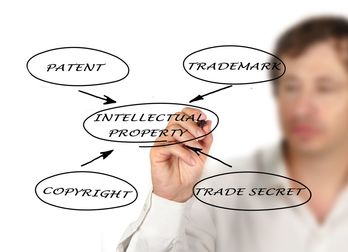 There are many considerations to take into account when licensing your intellectual property. Adding to the complexity of the agreement is that each type of intellectual property, whether it be patents, trademarks, or copyrights, have different concerns and problems that you need to pay attention to. For example with trademarks you will want to pay attention as to how your mark will be treated by the licensee. How will they be displaying your mark? What sort of training will they provide their employees? However here are some general guidelines for you to consider when licensing your intellectual property.
A video of Dr. Francis Gurry, Director General of World Intellectual Property Organization (WIPO), speaking at Melbourne Law School. This lecture explored the major economic, social, and political developments affecting intellectual property. It also examined how innovation and intellectual property are increasingly central to economic strategy and competitive advantage, and showed how the knowledge economy is causing an adjustment to the way in which we think of the role of intellectual property. This USPTO video provides a quick and easy breakdown of the three main types of intellectual property: trademarks, patents, and copyrights. You’ll learn how trademarks differ from domain names and business names. By the end of the video, you’ll understand how to use each type of intellectual property to protect a different aspect of your business. 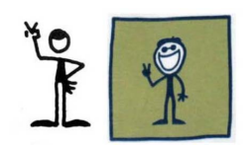 In this article, Edwin Komen Esq., reviews the 10th Circuit decision in the case of Blehm v. Jacobs. Blehm had a stick figure called "Penman" and Jacobs had a stick figure called "Jake". The two stick figures are shown here with Penman on the left and Jake on the right. Blehm sued Jacobs on the basis that Jacobs had infringed on his copyright of the Penman stick figure. At the district court the Judge ruled in favor of Jacobs on the basis that the Penman figure was not substantive enough of a work to qualify for copyright protection. Blehm appealed the decision. Although the appellate court came to the same result as the district court, a victory for Jacobs, it was for an entirely different reason. Read this article to learn more about how courts will analyze your copyrights. Question: If I create a company to sell T-Shirts, what is the extent to be able to use likeness of other intellectual property.
Facts: I want to start a company to sell T-Shirts, and I want to use the likeness of things from video games and movies. I see others selling shirts with the likeness or even the characters themselves on the shirt. I want to know, if I were to use the likeness of the IPs, where is the breaking point? Where is it copyright infringement. Answer: Intellectual Property covers the application of laws to the fields of patents, trademarks, copyrights, and trade secrets. I will cover each field as it applies to the images you use on your t-shirts. Patents A patent is an exclusive right given to an inventor to exclude others, in this country, in the sale or manufacture of the idea covered by the claims in the patent. The public policy behind patents is to encourage inventors to innovate by granting them the exclusive right to exclude others in return for their disclosure of the idea to the public who can then build upon the idea to create new innovations. For an invention to be patentable it has to be (i) useful, (ii) novel, and (iii) not obvious. The lifespan of a patent is 20 years from the date it is filed. Here you will not be able to receive protection for your images by the use of a patent because the images on your t-shirts will not be considered “useful”. The USPTO considers an invention useful if it has some utility and images are not considered to have any utility. There does exist a class of patents called “Design Patents” which does protect ornamental features of a useful product. You could argue that the t-shirt is useful, provides cover and warmth, thus satisfying the first test. However the USPTO will likely find that your images are not novel and that the idea of putting images on t-shirts is obvious. Thus it is unlikely that the USPTO will grant you a Design Patent on your images. The plus side of this is that the likelihood of you being sued for patent infringement is unlikely as your competitors will not be able to protect their images with a patent. In summary, patent laws are just not applicable here. Trademark Many people think of logos that identify a company when considering trademarks. However that is just one a small part of the laws regarding trademarks. The Aspen outline on Intellectual Property describes trademarks as follows: “Trademarks permit consumers to identify the source of goods or services. The purpose of trademark law is to ensure that consumers are able to rely on marks in exercising their purchasing preferences by prohibiting competitors from using marks in a way that confuses consumers about the source, sponsorship, or affiliation of goods or services.”. So the public policy behind trademarks is to protect the consumer so if the consumer sees a car with the famous BMW logo on it they will know that the source of the car is BMW and not Ford. Here you have not described any of the images you are using other than that they will be like characters and images used by other companies. If you sell a t-shirt with an image of the BMW logo and consumers, when looking at the shirt, believe that the shirt is an authentic BMW t-shirt then you have infringed on the BMW trademark. Likewise with characters. You sell a shirt with an image of Snow White on it that leads people to believe that it is the same Snow White made famous by Disney then you have infringed on Disney’s Snow White trademark. Trademark law has additional complexities in that some marks are “Famous” marks, marks are registered in certain “classes”, and marks can have national, state, and/or local scope. However I have given you some basic information to go by. In summary trademark law does apply to your case. If you places images on your t-shirts that suggest to the consumer that the source of the t-shirt is a company other than yours you are likely infringing on someone’s trademark. Penalties include significant fines. The advantage you have on your side is that you are a small fish in a big pond. My recommendation is to remember the golden rule. After all you would not want someone to use a hot selling mark that you created would you? Copyright A copyright is automatically granted to the creator of certain original works of authorship. The “work” must be a substantial expression of an idea placed onto some tangible medium. The public policy behind copyrights is to allow the owner of the copyright to control who can copy their original work of authorship. Copyright differs from trademarks a couple ways. First is that the purpose of trademark law is to protect the consumer while copyright law protects the author. Second is that while a trademark can protects slogans and logos a copyright will only apply to “substantial” works such as poems, books, photographs, and such. There are however some similarities between the two areas of law. You do not need to register your mark or copyright to obtain the provided protections, you get them automatically (note that by registering your mark or copyright will get you expanded rights). Also they have to be “tangible”. That is they have to be on some reproducible medium such as paper or in a computer file. There are some exceptions but I will exclude the exceptions here so as not to confuse the discussion. Here you have stated that you will use images that are like other images. If the images are similar than you possibly have violated someone’s copyright. It is best to talk to a IP attorney but a good test is to show your images to others along with the image that served as your creative source. If the people you show your images to do not see any similarities then it is likely that you are not violating any copyrights. If your images have no creative source other than your mind then it is also likely you are not violating any copyrights. Copyright law does apply to your case here. Since you state that your images will be like other images it is likely that you will be violating someone’s copyright. Penalties include significant fines. The advantage you have on your side is that you are a small fish in a big pond. Again, my recommendation is to remember the golden rule. After all you would not want someone to offer for sale a hot selling image that you created would you? Question: If I developed a website and was never paid, do I own the website code or does my client because the code is hosted on his server? Facts: I am a freelance web developer who designed and coded a website which is hosted on my client's server and under his domain name. Several months after completing the website, I still have not been paid. The client claims that he will be able to pay me in about a month. I have access to the server, and wrote the code entirely myself. Do I have the right to take down the code, given that I wrote it and have not been paid? Does the code belong to me in the first place? And does it matter that the text "Copyright" was included on the footer of all the pages? Answer: There are two areas of law that are raised by your facts. First are laws related to copyrights and second are laws related to contracts. I will apply the facts you have provided to each set of laws. Copyright Law A copyright is automatically granted to the creator of certain original works of authorship. The “work” must be a substantial expression of an idea placed onto some tangible medium. The code you have written is substantial because the code required to support a website usually takes many pages when printed. The code you have written is also an expression of an idea because the website is the idea and to express the website you need commands to control the placement of images, text, buttons, and the such. Finally it is tangible because the software code is stored in files that can be copied or printed. Thus the author of software code has the right to exclude others from copying the code. When is this right granted? It is granted to the programmer as soon as the work is completed. Moreover the code does not have to be labeled with a copyright notice for the right to be granted. In summary, and only applying copyright law to the facts, the code is yours and you have the right to exclude others from copying it. You can exclude your client from copying the code so if you were to take down your code and your client restores the code from a backup that would be a copyright violation. Recommendation: I would recommend that you first speak with a copyright attorney and provide him/her with all of the facts in this matter. I would think that the attorney would have you register your code with the US Copyright office as that will give you additional rights and protections and that you also place a copyright notice at the top of each file. At this time there does not seem to be a copyright violation as you, the owner of the copyright, copied your code to the server. Contract Law A contract is an agreement between two or more parties where there has been a “meeting of the minds” and each party has given something in exchange for a benefit. A “meeting of the minds” is a legal phrase that means all of the parties understand the agreement and its terms. Here you were to give your time and skill to create a website in return for money and your client was to give his/her money in return for a website. Since the “exchange” has not occurred when it was expected to occur we say that the contract has been breached. When a contract has been breached you can seek remedies. A contract for services, such as what you are performing here, does not have to be in writing to be enforceable. In your facts you made no mention of a contract. I assume then that the contract was simple - you provide the code and your client provides the hardware and the money to pay you. A more complex contract would also transfer the copyright to the client by a license or outright assignment. Assuming a simple contract that does not include the transfer of your copyright to the client the copyright still belongs to you, the creator. In summary the client has breached the contract by not paying you for your services. You can seek a court order for full payment of your services. You can also seek a court order to have the client remove your software code from their server. Recommendation: Again, I would recommend that you first speak with a business attorney and provide him/her with all of the facts in this matter. I would think that the attorney would recommend that you use the small claims courts in your state if the amount of money you are seeking from your client is within the limits of small claims court. I would also think that the attorney would not recommend that you take down the website due to lack of payment without a court order. That could land you into trouble. If you have a question you would like to have me answer feel free to submit the question on the Contact Me page. Question: Do I own ideas and research that I have put together off the clock?
Facts: I am presenting an idea for a new division for my company. I have countless presentations and financials that I have put together on my time. If my company decides it is not a route they want to go, do I still own the idea and research? Answer: First look at any agreements you signed with your employer when you started. Most employer / employee agreement have a clause basically saying that all intellectual property (IP) you create, regardless if you are on the clock or not, belongs to the employer. If the IP you create outside of work is in a different field of work than what your employer is in you may have an argument in court to say that the IP belongs to you. However from your facts it seems that the IP is in the same field of work that your employer is in so their legal position is stronger than yours. If there are no agreements between you and your employer then your legal position is stronger but it would still be weaker than your employer's legal position. The courts usually take the view that IP created by an employee belongs to the employer. Note that this view does not apply to independent contractors where the result is the opposite unless the independent contractor was hired specifically to create the invention. However from your facts you seem to be an employee. In summary, considering you fact that the IP you created on your own time is in the same field of work as your company is in, it is likely that the IP you created belongs to your company. I would recommend that if your ideas are rejected by your company that you ask your company to release those ideas to you. This may involve some negotiation and an agreement will have to be created. Contact an IP attorney to help you in this matter. The advantage of this approach is that it will reduce the risk of litigation later on if you do use the ideas. Another advantage is that the consideration you have to provide your company to release the ideas will be less than what you would have to pay later on if you do use the ideas and they were successful. An example of this is Facebook. If Mark Zuckerberg, founder of Facebook, got an agreement from the Winklevoss twins to release the idea to him I am sure he would have had to give them far less consideration than the millions he paid them after Facebook was successful. Question: Does youtube or any other website receive ownship of the copyrights to your original work if you upload your work on to their website for public viewing?
Answer: When you create an account on YouTube, and many other websites like YouTube, you are asked to read and sign an agreement. You will need to read that agreement to determine if you "assign" your copyrights to YouTube when uploading the work. Assignment is the legal term used when you transfer rights in something you have to another. You can ask YouTube to show you the agreement or by going to your account you may be able to see it online. |
Categories
All
|
California, Inland Empire - (909) 566-2801
California, Santa Barbara - (805) 500-6241
Tennessee - (423) 226-8036
Georgia - (404) 436-0899
California, Santa Barbara - (805) 500-6241
Tennessee - (423) 226-8036
Georgia - (404) 436-0899


